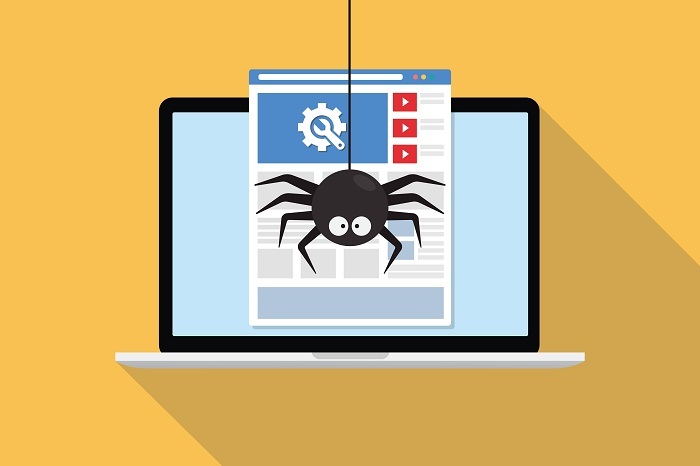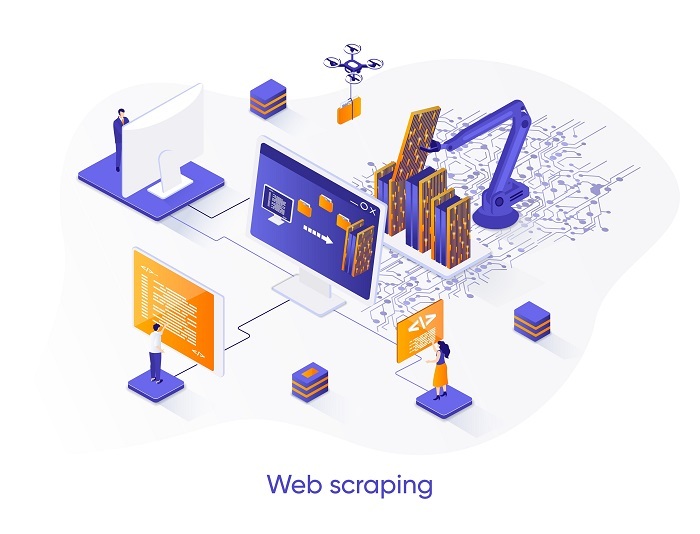
 Data Structure
Data Structure Networking
Networking RDBMS
RDBMS Operating System
Operating System Java
Java MS Excel
MS Excel iOS
iOS HTML
HTML CSS
CSS Android
Android Python
Python C Programming
C Programming C++
C++ C#
C# MongoDB
MongoDB MySQL
MySQL Javascript
Javascript PHP
PHP
- Selected Reading
- UPSC IAS Exams Notes
- Developer's Best Practices
- Questions and Answers
- Effective Resume Writing
- HR Interview Questions
- Computer Glossary
- Who is Who
What is a Spider in Digital Marketing?
The term "digital marketing" describes the use of such online platforms and technology to advertise a business, item, or company. In the era of digitalization, digital marketing is now a crucial part of every firm's revenue business plan.
Digital marketing's key benefit is the fact that it enables firms to connect with a broader customer base than they could with conventional advertising strategies. Certain ethnicities and different regions can be targeted via broadcast platforms including media platforms, emailing, browsers, smartphone apps, and webpages. This enables companies to specifically target certain demographic groups with their promotional messaging, increasing traffic and conversions.
Website optimization, pay-per-click (PPC) branding, online marketing, promotion on social media, marketing services, banner advertisements, and consumer promotions are a few popular digital marketing techniques.
In general, digital marketing gives companies a practical means of broadening their customer base and raising customer loyalty. In order for companies to maintain a competitive advantage in today's modern digital marketplace, it's critical that they stay current with the most recent practices in digital marketing.
Spider in Digital Marketing
Web crawlers or web browser bots are also known as "spiders" in the context of digital marketing. It's an automated software application that routinely examines internet sites and internet pages in order to gather data and create an inventory for websites such as Google, Amazon, Alibaba, and others.

In order to establish a webpage's significance and legitimacy for search terms and themes, a web browser robot examines the text, architecture, and interconnections of the domain. The operation of online services and the appearance of domains on search engine outcomes pages are both critically dependent on robots, also known as web crawlers. Digital marketing depends on understanding how they operate and optimizing for individuals. In order to produce search engine results pages (SERPs) for query expansion, search engine crawlers require this data.
SEO experts and marketing specialists may prepare their domains for crawling by search engines by putting SEO guiding principles into effect, such as optimizing page names, key summaries, footer labels, data, and affiliate links.
What Makes Web Crawlers Known as "Spiders"?
Web crawlers are frequently called "spiders" as a result bots explore the search results and investigate connections. When a bot or crawler visits a website result, it first indexes the home page before following hyperlinks that lead elsewhere thereafter moving on to links to other websites. Comparable to the manner in which a spider weaves a web by rotating strings to join various spots, this approach can produce a map that resembles a network that includes all the relationships and pages on the world wide web.
WebCrawler, the very first search site, began development in 1993 and is credited with popularizing the word "spider". Because of the spider-like method it really would browse and analyze websites, the title came from this characteristic. The word "spider," in addition to titles like "internet robot," "robo," continues to be used to describe web crawlers in modern times.
Generally, the word "spider" is used to describe web crawlers as a result of the manner in which they move over the world wide web by drawing parallels and building a database of the website during their travels.
What Differentiates Web Scraping from Web Crawling?
These web crawling and web scraping are methods for obtaining information from online resources, however, they work differently and have different objectives.

Web crawling is a robotic procedure that involves browsing networks, examining their information, and then clicking on connections to certain other webpages there as well as other internet sites. The main goal of web crawling is to index internet pages for google search so that visitors may access important documents when they perform a term or expression search.
On the reverse side, web scraping entails the procedure of retrieving certain data from online sites and putting it in an organized manner, such as a worksheet or dataset. Web scraping may be executed manually or automatically and utilized for something like a range of tasks, including research methodology, contact creation, and market intelligence.
The following are the primary distinctions among both web scraping and web crawling ?
Objective ? The objective of both web crawling and web scraping is different, the former focuses on indexing internet pages for browsers, whereas the web scraping concentrates on collecting particular data from online sites.
Range ? Online scraping often directly targets pages or areas of a domain, whereas web crawling typically entails accessing a vast amount of content on a specific url or across numerous domains.
Techniques ? Although web scraping can be carried out manually or with a number of AI techniques, web crawling is normally carried out with specialist application system web crawlers.
Although web crawling and web scraping have certain resemblance fundamentally, they fulfill multiple objectives and call for different techniques and equipment.
Working of Spider
Web crawlers commonly referred to as robots and "spiders", are automatic computer programs that explore internet sites and repeatedly index their material. This is a broad explanation of how web crawlers operate ?
A collection of sample Addresses, typically serving as the crawl's entryways, are visited mostly by the crawler first. These might be user-submitted Addresses, Websites found in earlier crawls, or Web addresses from a predetermined list.
The crawler retrieves the post's Html elements and examines its layout and content in order to identify whatever information to gather.
The crawler navigates through the page's connections to these other web pages located on either identical or different websites. Every time a new website is viewed, this procedure keeps happening, building a footprint on the internet.
The spider gathers information including web page names, conceptual keywords, headlines, and information as it navigates through each domain. The software used to create the outcomes of search engine sites indexes and stores this data after that (SERPs).
After it has thoroughly explored the digital platform or has reached a specific threshold, the crawler keeps on scanning and indexing web addresses.
Web crawlers can sometimes be configured to only visit particular areas on a domain, skip particular kinds of material, or prioritize particular URLs. A robots.txt record may also be used by webmasters to tell spiders particular portions of a given webpage to access and which sections to skip.
Spiders are vital to the operation of google search and indeed the appearance of webpages on result pages for searches. An essential part of digital advertising is comprehending how they operate and optimizing them.
Conclusion
In conclusion, spiders, robots also known as web crawlers, are an important component of digital advertising since they are crucial to how browsers work and how visible domains are on SERPs (SERPs). For marketing professionals wishing to increase their website's exposure and rating on SERPs, recognizing web crawlers' operations and optimizing their functionality is essential. Webmasters and advertising companies may improve the crawlability and indexability of their websites by putting SEO best business practices into effect. In conclusion, spiders are a crucial component of digital promotion, and companies that can effectively use this technology will have a comparative benefit online.

